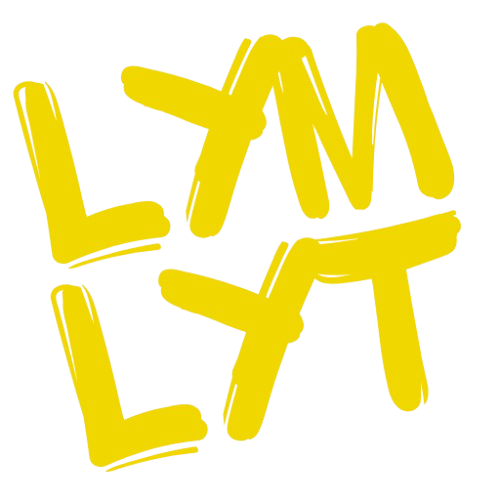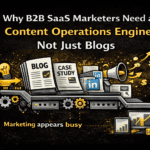Email is still the king of ROI and the path to achieve is through a good email marketing tool. For every dollar you put into it, you can expect some of the highest returns compared to other channels. Everyone is keen to know Content Marketing Metrics but we also need to stick to the basic of marketing i.e is email marketing. But if you are just starting out, paying for email marketing software can feel like a luxury. The good news is there are plenty of tools that offer forever-free plans or generous free tiers that can help you build, send, and automate emails without touching your budget.
Let’s start with the basics of what and how!!!
What Are Email Marketing Tools and Why Do They Matter in 2025?
Email marketing tools are software that help you send emails in a smarter way. Instead of writing and sending each email by hand, these tools let you design professional messages, schedule them, and send them to hundreds or even thousands of people at once. Most of them also give you features like ready-made templates, automation, and reports on how your emails are performing.
How They Help in Lead Generation
Email marketing tools make it easier to connect with your audience and turn interest into sales. Here is how they help:
- Stay connected: Share updates, offers, and useful content to build trust.
- Segment your audience: Send different emails to new subscribers, loyal customers, or any group you choose.
- Boost conversions: Use testing, personalization, and automation to guide people toward becoming customers.
- Track results: Measure opens, clicks, and sign-ups, then use the data to improve future campaigns.
Why Email Marketing is Still Relevant in 2025
You might think email marketing tool are old compared to social media or AI-powered ads. But email still delivers some of the highest returns. The difference is that your email list belongs to you. On social media, an algorithm decides who sees your post. With email, you can reach your audience directly.
Studies show that email marketing often brings back $36 for every $1 spent. That is a return most other channels cannot match. Inboxes are also smarter now at filtering out spam. This makes genuine and well-designed emails more visible than ever before.
Why Investing in One is a Step Toward Growth
Investing in an email marketing tools is not just about sending newsletters. It is about building a growth engine for your business.
- It helps you stay connected with your audience at scale.
- It makes it easy to build long-term relationships.
- It saves time by automating repetitive tasks.
- It allows you to grow from a one-person setup to a full business without losing the personal touch.
In short, email marketing tool is not a cost. It is an investment in steady and predictable growth.
1. Mailchimp
Mailchimp is probably the most recognized name in email marketing tool. Known for its simple interface and wide integrations, it has become the go-to for small businesses and creators who want to get started quickly.
What to like
- Intuitive drag-and-drop editor that makes designing emails easy
- Basic automation workflows available even on the free plan
- Plenty of integrations with popular platforms like Shopify, WordPress, and Zapier
- A library of templates that help you move fast
What could be better
- The free plan can feel restrictive as you grow
- Advanced automation and A/B testing are locked behind higher tiers
- Gets expensive quickly once your list size increases
Plans
- Free: 500 contacts, 1,000 monthly email sends, limited templates and automation
- Essentials: Starts at $4.34/month for 5000 email sends for 500 contacts, includes A/B testing and more templates(50% off-limited time)
- Standard: Starts at $6.48/month for 6000 email sends, for 500 contacts, adds automation and retargeting(50% off-limited time)
- Premium: Starts at $129.57/month for 150,000 email sends and unlimited contacts, advanced features and dedicated support(50% off-limited time)
Who is it best for?
- Free plan: Ideal for freelancers, solo creators, or very small businesses with 1–2 people handling marketing. Perfect if you just need to send newsletters, simple updates, or occasional promotions while building an initial subscriber base.
- Essentials / Standard: Best for startups and growing small businesses with teams of 3–10 people. Suitable if you are running regular campaigns, need more professional templates, and want features like A/B testing, audience segmentation, or automated workflows without spending too much.
- Premium: Designed for larger companies or established marketing teams with 10+ members managing campaigns. Useful if you are dealing with big subscriber lists (tens of thousands), require advanced reporting, complex segmentation, multichannel campaigns, or need reliable high-volume sending. Also valuable if you want priority support and more collaboration tools.

2. Constant Contact
Constant Contact is one of the oldest and most trusted names in email marketing tool. It is especially popular among small and medium-sized businesses that want an all-in-one tool to manage not only email campaigns but also events, surveys, and even social media marketing. Its focus on ease of use and customer support has made it a long-time favorite for beginners.
What to like
- Very beginner-friendly interface with step-by-step guidance
- A large collection of professional email templates
- Event management and RSVP tools included
- Built-in social media posting and ad integrations
- Strong customer support with live chat and phone options
What could be better
- Free plan is very limited compared to competitors
- Advanced features like automation are basic
- Pricing jumps quickly as your contacts grow
Plans
- Free Trial: 60-day trial with up to 100 contacts. Includes basic email features and templates. No credit card required.
- Lite: From $12/month for up to 500 contacts. Comes with unlimited email sends, signup forms, templates, and basic reporting.
- Standard: From $35/month for up to 500 contacts. Unlocks advanced automation, subject line testing, dynamic content, and event marketing. Scales in price as your list grows.
- Premium: Starts at $80/month and also has custom pricing for larger contact lists. Includes advanced segmentation, enhanced reporting, and priority support for bigger teams and high-volume needs.
Who is it best for?
- Free Trial: Best for freelancers, solo creators, or very small businesses with 1–2 people. Great if you want to test email marketing for the first time without committing to a paid plan.
- Lite: Ideal for small local businesses, nonprofits, or community organizations with 2–5 team members. Works well if your main goal is sending newsletters, event invites, and simple promotions while keeping costs low.
- Standard: Suitable for startups or small-to-medium businesses with marketing teams of 5–10 people. A good choice if you need automation, personalized campaigns, or are running regular promotions and events.
- Premium: Designed for established companies or larger teams with 10+ members. Useful if you manage big subscriber lists, need advanced segmentation, detailed analytics, or priority customer support. Perfect for agencies, e-commerce brands, and organizations running frequent campaigns at scale.

3. Brevo (formerly Sendinblue)
Brevo has positioned itself as one of the most versatile email and marketing automation platforms. It goes beyond email by offering SMS, chat, CRM, and even transactional email tools in one platform. This makes it popular with businesses that want a multi-channel approach without piecing together multiple tools.
What to like
- All-in-one platform with email, SMS, chat, and CRM built in
- Unlimited contact storage (pricing is based on email volume, not contacts)
- Transactional email capabilities for order confirmations, receipts, etc.
- Marketing automation workflows available on lower-tier plans
- Free plan includes generous sending allowance compared to competitors
What could be better
- Template editor can feel less polished compared to Mailchimp or Constant Contact
- Reporting and analytics are not as advanced on lower plans
- Some advanced features (A/B testing, advanced automation) are reserved for higher tiers
Plans
- Free: 300 emails/day with unlimited contacts. Includes customizable templates, transactional emails, and SMS credits (pay as you go).
- Starter: From $09/month for 5,000 emails/month. Removes daily sending limit, includes basic reporting and email support.
- Business: From $18/month for 5,000 emails/month. Adds marketing automation, A/B testing, advanced segmentation, and phone support.
- Enterprise: Custom pricing. Includes advanced reporting, dedicated account manager, priority sending, and tailored onboarding.
Who is it best for?
- Free plan: Great for freelancers or early-stage businesses who need reliable email delivery and transactional email without paying upfront. Especially useful for small e-commerce shops or local businesses starting out.
- Starter / Business: Best for startups and growing small-to-medium businesses with 3–10 team members. Ideal if you’re running regular campaigns, want to integrate email marketing tool with SMS/CRM, or need automation features without overspending.
- Enterprise: Designed for larger companies, agencies, or high-volume senders. A good fit if you’re managing complex campaigns, need multi-user collaboration, advanced reporting, or want dedicated support with guaranteed deliverability.

4. MailerLite
MailerLite is known for its clean design, affordability, and focus on simplicity. It’s a favorite among creators, bloggers, and small businesses who want a lightweight but powerful tool that doesn’t overwhelm with too many features. Despite being budget-friendly, it offers automation, landing pages, and even website-building features.
What to like
- One of the most affordable email marketing platforms with strong value for money
- Clean, minimal interface that’s easy for beginners to navigate
- Built-in landing pages, websites, and signup forms
- Automation features available even on lower plans
- Generous free plan with advanced tools included
What could be better
- Template library is smaller compared to competitors like Mailchimp or Constant Contact
- Fewer third-party integrations than Brevo or Mailchimp
- Advanced features (like AI tools or advanced segmentation) require higher tiers
Plans
- Free: Up to 500 subscribers and 12,000 monthly email sends. Includes automation, websites, landing pages, and basic templates.
- Growing Business: From $10/month for unlimited email sends with up to 500 subscribers. Adds unlimited templates, dynamic emails, auto-resend campaigns, and basic reporting.
- Advanced: From $20/month for unlimited email sends with up to 500 subscribers. Includes advanced automation, promotion pop-ups, Facebook integrations, and 24/7 live chat support.
- Enterprise: Custom pricing. Designed for large-scale needs, includes advanced deliverability, dedicated support, custom integrations, and account management.
Who is it best for?
- Free plan: Perfect for freelancers, creators, or bloggers who want to start building an audience with professional tools at no cost. Works well for sending newsletters, welcome emails, or running simple campaigns.
- Growing Business / Advanced: Best for small businesses and startups with 3–10 team members who need automation, unlimited sending, and integrations to scale their campaigns. A good fit if you want more flexibility without high costs.
- Enterprise: Designed for established companies or agencies running high-volume, complex campaigns. Suitable if you require advanced deliverability, dedicated account managers, and priority support.

5. Omnisend
Omnisend is built with e-commerce brands in mind. It goes beyond email marketing by offering SMS, push notifications, and deep integrations with Shopify, WooCommerce, and other online store platforms. Its biggest strength is helping online sellers run multi-channel campaigns and recover revenue with tools like cart abandonment automation.
What to like
- Strong e-commerce integrations (Shopify, WooCommerce, BigCommerce, etc.)
- Multi-channel campaigns with email, SMS, and push notifications
- Pre-built automation workflows for cart recovery, welcome series, and product recommendations
- Advanced segmentation and personalization features
- Free plan includes automation and e-commerce features most competitors charge for
What could be better
- Pricing jumps quickly as contact list or SMS usage grows
- Less suitable for non-e-commerce businesses
- Template customization can feel less flexible compared to MailerLite or Mailchimp
Plans
- Free: Up to 250 contacts and 500 monthly emails. Includes automation, segmentation, signup forms, and reports.
- Standard: From $16/month for 500 contacts and 6,000 monthly emails. Adds A/B testing, performance reports, and more advanced email features.
- Pro: From $59/month for 500 contacts and unlimited emails. Includes advanced reporting, SMS credits, push notifications, and priority support.
- Enterprise: Custom pricing. Tailored for very large e-commerce brands, with dedicated account managers, deliverability support, and advanced customizations.
Who is it best for?
- Free plan: Perfect for new online stores or solo entrepreneurs testing e-commerce email + automation. Great for abandoned cart recovery and basic newsletters.
- Standard: Best for growing e-commerce brands with small teams (2–5 members) that want regular campaigns, automation, and A/B testing at a low cost.
- Pro: Designed for scaling e-commerce businesses with 5–10+ team members. Works well for brands needing advanced reporting, multi-channel campaigns (email + SMS + push), and higher sending limits.
- Enterprise: Best for large or established e-commerce brands managing very big subscriber lists, requiring advanced segmentation, priority support, and custom solutions.

6. Moosend
Moosend is one of the most affordable yet powerful email marketing tool, popular among startups and small businesses that want access to automation without breaking the bank. It combines simplicity with strong features like advanced automation, personalization, and AI-powered recommendations, making it a hidden gem in the email marketing space.
What to like
- Very budget-friendly compared to competitors like Mailchimp or Constant Contact
- Unlimited emails on all paid plans
- Advanced automation and segmentation available even on lower tiers
- Drag-and-drop editor with easy personalization options
- AI-powered product recommendations for e-commerce
What could be better
- Smaller template library compared to Mailchimp or Brevo
- Limited third-party integrations
- Customer support options are more basic on lower plans
Plans
- Free Trial: 30-day free trial with access to all features and up to 1,000 email sends. Great for testing the platform.
- Pro: From $9/month for up to 500 subscribers (unlimited emails). Includes automation workflows, landing pages, transactional emails, and advanced reporting.
- Moosend+: Custom pricing. Includes account management, priority support, advanced security, and tailored onboarding for large organizations. There is also the enterprise plan with certain add ons to this one.
Who is it best for?
- Free Trial: Ideal for freelancers or small businesses who want to try advanced automation and campaign building before committing.
- Pro: Best for startups and small-to-medium businesses with 2–10 team members. A great fit if you want unlimited sending, automation workflows, and personalization at a low monthly cost.
- Moosend+: Suitable for established businesses or agencies managing large lists. Works well if you need advanced deliverability, dedicated account managers, and custom solutions.

7. Klaviyo
Klaviyo is a powerhouse in email and SMS marketing, designed primarily for e-commerce businesses. It stands out for its deep integrations with platforms like Shopify, BigCommerce, and WooCommerce, and its advanced segmentation and data-driven personalization. Many fast-growing DTC and e-commerce brands rely on Klaviyo for scaling multi-channel campaigns with precision.
What to like
- Best-in-class integrations with e-commerce platforms and tools
- Advanced segmentation and personalization using real-time customer data
- Strong automation features, including cart abandonment, browse abandonment, and product recommendations
- Unified email + SMS marketing in a single platform
- Detailed analytics and revenue attribution reporting
What could be better
- Pricing scales quickly as your contact list grows
- Can feel overwhelming for beginners due to the advanced feature set
- SMS costs are billed separately, which can add up
Plans
- Free: Up to 250 contacts and 500 monthly email sends and 150 monthly SMS/MMS credits. Includes email templates, forms, and basic automation.
- Email Plan: From $20/month for up to 500 contacts with 5000 email sends. Includes advanced segmentation, automation, and analytics.
- Email & SMS Plan: From $35/month for 500 contacts providing 5,000 Emails + 1,250 mobile messaging credits per month. Combines unlimited emails with SMS credits, plus advanced flows and personalization.
- Enterprise: Custom pricing for large businesses. Includes priority support, dedicated account management, and advanced compliance/security.
Who is it best for?
- Free plan: Good for brand-new e-commerce stores or solo entrepreneurs who want to test Klaviyo’s automation and segmentation capabilities at a small scale.
- Email / Email & SMS Plans: Best for fast-growing DTC brands and e-commerce businesses with small-to-medium teams (3–10 people). A great fit if you want to run multi-channel campaigns with advanced personalization.
- Enterprise: Built for larger e-commerce companies, established retailers, or agencies handling high-volume campaigns. Ideal if you need enterprise-grade security, dedicated onboarding, and expert support.

8. ActiveCampaign
ActiveCampaign is one of the most advanced email marketing tool and automation platforms available. It’s known for its robust automation builder, deep CRM functionality, and ability to handle highly personalized campaigns. Many B2B companies, e-commerce brands, and agencies rely on it when they outgrow beginner-friendly tools and need serious marketing automation at scale.
What to like
- Best-in-class automation builder with advanced workflows
- Built-in CRM with sales automation and lead scoring
- Extensive integrations with e-commerce, CRM, and productivity tools
- Advanced segmentation and dynamic content for personalization
- Excellent deliverability rates and customer support
What could be better
- Higher learning curve for beginners compared to tools like MailerLite or Moosend
- Gets expensive quickly as your contact list grows
- Some features (like predictive sending and advanced reporting) are locked behind higher tiers
Plans
- Free Trial: 14-day free trial with full feature access to test automation, CRM, and integrations.
- Starter: From $15/month for up to 1,000 contacts. Includes unlimited email sends, basic automation, forms, site tracking, and chat/email support.
- Plus: From $49/month for 1,000 contacts. Adds CRM with sales automation, landing pages, Facebook custom audiences, lead scoring, and SMS marketing.
- Professional: From $79/month for 1,000 contacts. Includes predictive sending, advanced automation, split automations, site messaging, and one-on-one onboarding.
- Enterprise: Custom pricing but starts at $145/month. Offers custom reporting, SSO, dedicated account rep, phone support, and enterprise-level security.
Who is it best for?
- Free Trial: Great for small businesses or marketers who want to explore automation and CRM before committing.
- Starter / Plus: Best for small-to-medium businesses (2–10 team members) looking to combine email marketing with sales automation, CRM, and multichannel campaigns.
- Professional: Ideal for growing companies or established teams that want predictive analytics, advanced personalization, and multi-step automation.
- Enterprise: Designed for large organizations, agencies, or enterprises that need scalable campaigns, dedicated support, and enterprise-level security/compliance.

9. Sender
Sender is a budget-friendly email and SMS marketing platform that focuses on simplicity and value. It’s especially attractive to small businesses, nonprofits, and creators who want advanced automation without the high costs of bigger players. Despite its affordable pricing, it includes segmentation, automation workflows, and even push notifications, making it surprisingly powerful for the price.
What to like
- Very affordable pricing with generous free plan
- Automation workflows and segmentation available on all plans
- SMS and web push notifications included alongside email
- Drag-and-drop editor with personalization options
- Good deliverability rates and strong value for money
What could be better
- Fewer integrations compared to larger competitors like Mailchimp or Klaviyo
- Template library is smaller than Constant Contact or MailerLite
- Reporting and analytics are more basic on entry-level plans
Plans
- Free: Up to 2,500 subscribers and 15,000 monthly email sends. Includes automation, segmentation, signup forms, and push notifications.
- Standard: From $10/month for up to 2,500 subscribers and 12,000 emails. Adds more advanced templates, better analytics, and higher sending limits.
- Professional: From $20/month for 5,000 subscribers and 24,000 emails. Includes priority sending, advanced segmentation, SMS campaigns, and premium support.
- Enterprise: Custom pricing. Offers dedicated support, advanced security, higher sending volumes, and tailored solutions for large organizations.
Who is it best for?
- Free plan: Ideal for freelancers, bloggers, or very small businesses who want to start with automation and newsletters at zero cost.
- Standard: Best for startups and small businesses (2–5 team members) who need higher email volumes, segmentation, and reliable automation.
- Professional: Great for growing businesses or agencies managing multiple campaigns. Works well if you want to add SMS, push notifications, and advanced personalization.
- Enterprise: Designed for larger businesses or organizations that need scalable sending, dedicated support, and custom features.

10. SmartrMail
SmartrMail is an email marketing tool designed specifically for e-commerce stores. Its strength lies in making email marketing simple and effective for online sellers, with pre-built automations, personalized product recommendations, and deep integrations with platforms like Shopify, BigCommerce, and WooCommerce. It’s a tool built to help merchants drive sales quickly without needing to master complex marketing software.
What to like
- Built specifically for e-commerce with product recommendation emails, abandoned cart flows, and purchase follow-ups
- Easy integration with Shopify, BigCommerce, WooCommerce, and Neto
- Intuitive email editor tailored for store owners (drag-and-drop + product feed integration)
- Pre-built automations to launch campaigns fast
- Good deliverability and customer support geared toward small shops
What could be better
- Not as flexible for non-e-commerce businesses
- Fewer integrations outside the e-commerce ecosystem
- Analytics and reporting are simpler compared to Klaviyo or Omnisend
Plans
- Free: Up to 200 subscribers and 750 monthly email sends. Includes product recommendations, abandoned cart emails, and basic automation.
- Essential: From $16.25/month for up to 500 subscribers. Includes12 emails per subscriber, advanced automations, segmentation, and A/B testing.
- Pro: From $54/month for 1,000 subscribers. Includes 24 emails per subscriber, priority support, advanced reporting, and more personalization features.
- Enterprise: Custom pricing. Offers dedicated account managers, advanced features, and tailored solutions for large merchants.
Who is it best for?
- Free plan: Perfect for small e-commerce shops just starting out, who want abandoned cart recovery and product recommendation emails right away.
- Essential: Best for growing online stores (2–5 team members) running regular campaigns and wanting automation with unlimited sending.
- Pro: Ideal for scaling e-commerce brands needing advanced reporting, segmentation, and higher-level support.
- Enterprise: Built for large or established retailers and e-commerce companies managing huge lists and wanting personalized support and enterprise-grade features.Unlike other platforms Smartrmail offers you to choose from the number of subscribers from the very start and you can cater your plan from all sizes.

11. Benchmark Email
Benchmark Email is a user-friendly email marketing tool known for its simplicity and clean design. It’s popular among small-to-medium businesses, nonprofits, and organizations that need straightforward email campaigns without heavy complexity. With features like responsive templates, automation, and surveys, it focuses on helping teams send professional emails quickly and easily.
What to like
- Intuitive drag-and-drop email builder with responsive templates
- Good balance of simplicity and functionality — great for beginners
- Includes surveys, polls, and signup forms for audience engagement
- Real-time reporting with easy-to-understand analytics
- Strong multilingual support, making it attractive for global users
What could be better
- Automation features are less advanced compared to ActiveCampaign or Klaviyo
- Integrations library is smaller than Mailchimp or Brevo
- Free plan has limited capabilities for growing businesses
Plans
- Free: Up to 500 subscribers and 3,500 monthly emails. Includes signup forms, templates, and basic reporting.
- Pro: From $15/month for 500 subscribers. Includes 7,500 emails, automation, A/B testing, landing pages, and advanced reporting.
- Enterprise: Custom pricing. Offers advanced segmentation, white-labeling, sub-accounts, and dedicated account management.
Who is it best for?
- Free plan: Ideal for freelancers, solopreneurs, or very small nonprofits who need to send simple newsletters or updates.
- Pro: Best for small-to-medium businesses (2–10 people) that need regular campaigns, landing pages, and automation without high costs.
- Enterprise: Suitable for larger organizations, agencies, or businesses managing multiple brands and requiring white-labeling or dedicated support.

Conclusion: Choosing the Best Free Email Marketing Tool in 2025
Email marketing remains one of the most cost-effective and high-ROI channels for businesses of all sizes. With so many platforms offering forever-free plans or generous free tiers, the barrier to entry has never been lower. Whether you are a freelancer sending newsletters, a small business nurturing leads, or an e-commerce store trying to recover abandoned carts, there’s a tool that can fit your needs without requiring upfront investment. Email Marketing tool is an essential and you got to select the one that works for you.
The key is to choose based on your stage of growth and business model:
- If you’re just starting out and want something simple to send newsletters and basic campaigns, platforms like Mailchimp, MailerLite, or Sender are beginner-friendly choices. They provide easy editors, templates, and automation to help you get moving quickly without being overwhelmed.
- If your business is growing and you need more sophisticated automation, reporting, or multichannel features, consider tools like Brevo, Benchmark, or GetResponse. These platforms balance affordability with stronger functionality, giving you more room to scale without breaking the bank.
- If you run an e-commerce brand, tools like Omnisend, SmartrMail, or Klaviyo are purpose-built for online stores. They integrate deeply with platforms like Shopify and WooCommerce, making it easier to run personalized campaigns, recover carts, and boost sales through automation.
At the end of the day, free plans give you the opportunity to experiment and learn without risk. They let you build your list, test automation, and understand what works best for your audience. But as your subscriber base grows and your campaigns get more sophisticated, expect to eventually upgrade to a paid plan. Think of it not as a cost, but as an investment in predictable, scalable growth.
In 2025, email marketing is far from outdated—it is still a cornerstone of digital communication and revenue generation. The smartest step you can take right now is to pick a free plan, start testing, and build the foundation for long-term success. When you are all set with the tool that works for you and you need SEO and Content Writing done right, Connect with us.







Leave a Reply